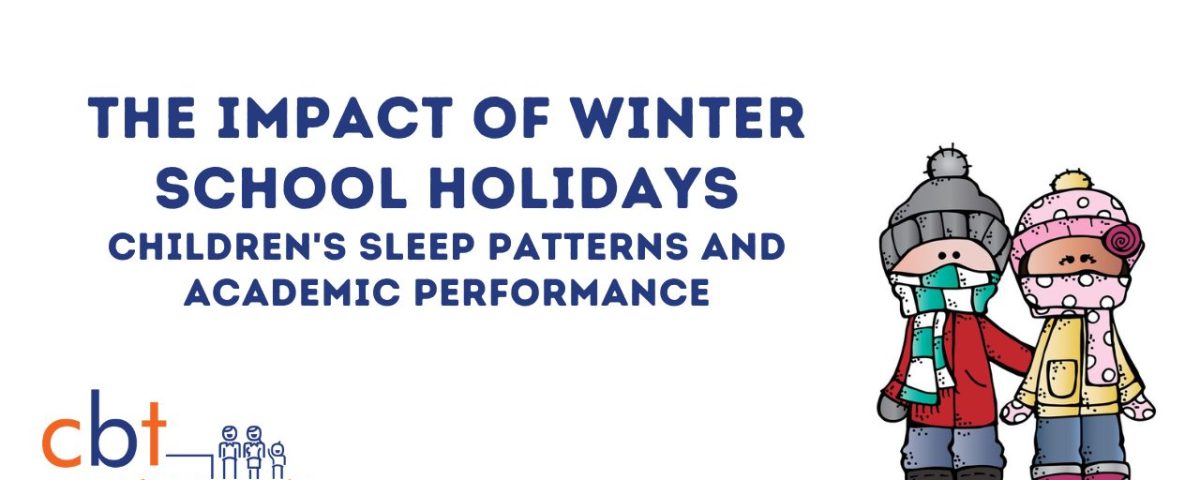The Impact of Winter School Holidays on Children’s Sleep Patterns and Academic Performance
As the crisp Queensland winter sets in and the final school bell of the term resonates through the classrooms, children rush home with the promise of a break filled with late bedtimes and morning sleep-ins. However, as parents and educators, we must understand the profound connection between these altered sleep schedules during the holiday period and the subsequent impact on children’s academic performance.
The Importance of Sleep for Children
Sleep plays a vital role in our health and wellbeing. In children, it contributes significantly to their physical growth, cognitive development, and emotional regulation. According to the American Academy of Pediatrics, school-aged children require 9-12 hours of sleep a night to function at their best. Unfortunately, the unstructured freedom of holidays can lead to inconsistent sleep routines, affecting the quality and quantity of sleep.
During holidays, children tend to go to bed later and wake up later, a considerable shift from their regular school routine. This disruption can unsettle their circadian rhythm – the body’s internal clock that signals when to be awake and when to sleep. This disturbance is not just about feeling groggy in the morning; it can lead to broader cognitive impairments.
The National Sleep Foundation affirms that sleep deprivation can impact children’s ability to focus, solve problems, and think critically, all skills necessary for academic success. Sleep is also tied closely with memory consolidation, a process where our brains solidify what we’ve learned during the day. Thus, an irregular sleep pattern can harm children’s academic progress and performance.
Research published in the Journal of Educational Psychology found a correlation between sleep disturbances and lower grades in school, indicating that the effect of these disrupted sleep schedules during winter break may echo far beyond the holidays.
So, what can parents and educators do to maintain good sleep hygiene and prevent this ‘holiday hangover’?
Practical Tips to Prevent ‘Holiday Hangover’
-
Establish a Consistent Sleep Schedule
Keep bedtimes and wake times as consistent as possible during the break. It’s okay to allow a bit of leeway but try to avoid major shifts.
-
Create a Sleep-Friendly Environment
Keep the bedroom quiet, dark, and at a comfortable temperature. Encourage relaxing bedtime activities like reading to signal to the body that it’s time to sleep.
-
Limit Screen Time Before Bed
The blue light emitted by electronic devices can interfere with the production of melatonin, the sleep hormone. Encourage children to switch off devices an hour before bed.
-
Encourage Physical Activity
Regular physical activity helps children sleep more soundly. Fun winter activities like sledding, ice skating, or a friendly snowball fight can promote better sleep.
-
Monitor Diet
Limit caffeine intake and avoid heavy meals close to bedtime. Foods that promote sleep include those rich in tryptophan, magnesium, calcium, and B6.
-
Promote Relaxation Techniques
Mindfulness, meditation, and breathing exercises can help children relax and prepare their bodies for sleep.
Winter holidays are a wonderful break from the daily grind for our children. However, let’s ensure these precious weeks of relaxation don’t derail their sleep patterns and consequently, their academic performance. Understanding the science of sleep and its ties to learning can help us provide a healthier, more balanced holiday experience, where restful nights and playful days coexist in harmony.
It’s important to remember…
Children can get excited for school holidays, and in turn, make it harder to manage their sleep patterns. Especially as the holidays bring in more events like sleepovers, parties and catch ups! These usually mean later nights, more energy, and more chance of derailing schedules. If your children do fall into a bad sleep schedule, don’t worry – I’m sure it’s happened to us all at least once. It’s all about how you manage this and use useful tips and techniques to get them back on a healthy and beneficial sleep schedule. You can use the tips above to manage this, but if you need additional help, that is completely fine!
Don’t hesitate to reach out for help if you need it – seeking support is a sign of strength, and it can help you and your family thrive.
A psychologist can give you a second opinion and investigate your family’s unique case, providing guidance and valuable insights to help your child’s sleep schedule thrive again! Please also refer to our blog here https://cbtprofessionals.com.au/10-tips-for-parent-survival-during-holidays/, that has some beneficial tips to survive school holidays (not just how to manage sleep schedules).
Please download our referral form here and take it with you to your GP appointment for preparation of a referral. Contact us now via telephone or online enquiry via www.cbtprofessionals.com.au to book. We will guide you through the process of finding the right psychologist for you and help you schedule a convenient appointment time. Schedule
Reach out to us today:
Coomera – (07) 5551 0251
Nerang – (07) 5668 3490
Mount Gravatt – (07) 3102 1366
If you, or someone you know, require help, please reach out to organisations like Beyond Blue. Additionally reach out to these organisations that may be able to help.
- Lifeline 13 11 14 — for anyone in crisis
- ReachOut (youth mental health service) — online help
- SANE Australia — call 1800 187 263
- Mental Illness Fellowship of Australia (MIFA) — call 1800 985 944
(Health Direct, 2020).
If this is an emergency, please contact 000 or visit your local emergency department.
Disclaimer: Content on this website is provided for education and information purposes only and is not intended to replace advise from your doctor or registered health professional. Readers are urged to consult their registered practitioner for diagnosis and treatment for their medical concerns.
THREE CONVENIENT LOCATIONS
MOUNT GRAVATT
Mt Gravatt Medical PrecinctSE 105, 1808 Logan Rd
Upper Mount Gravatt QLD 4122


